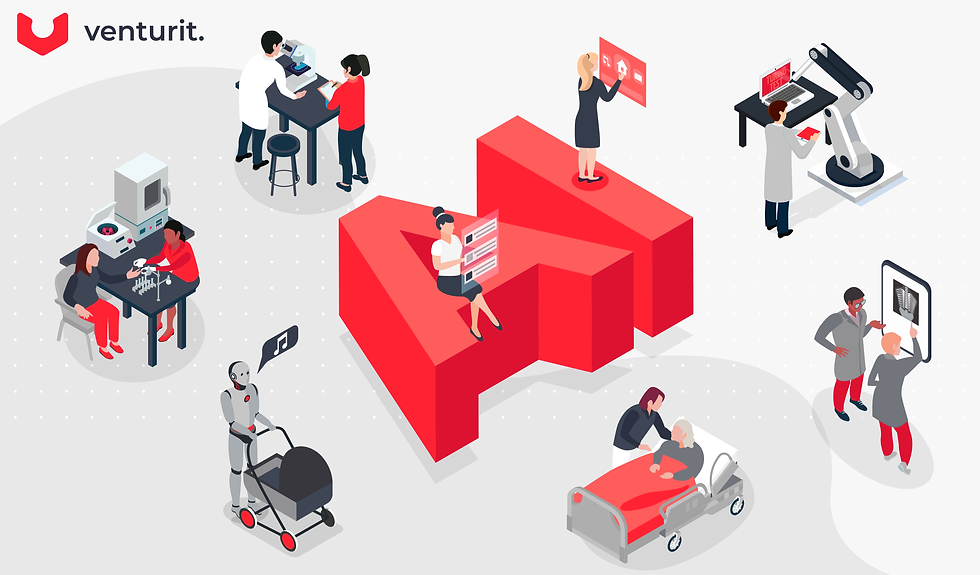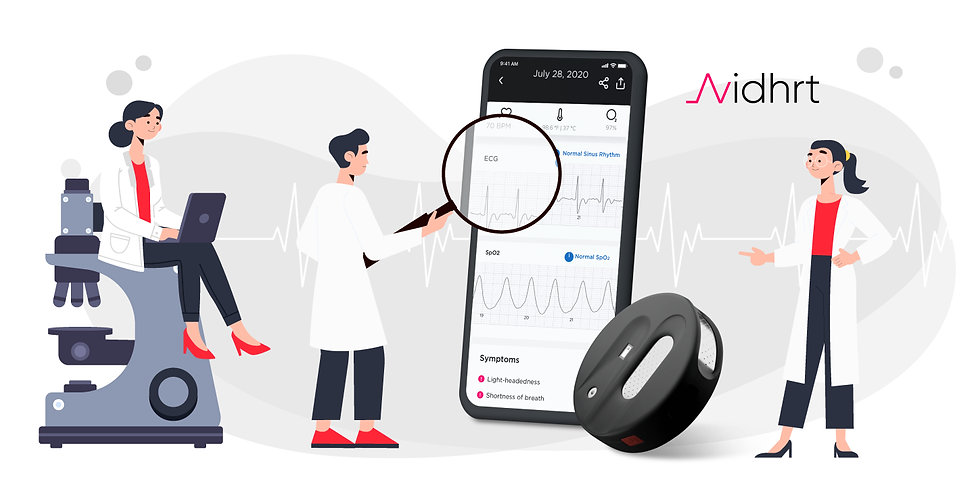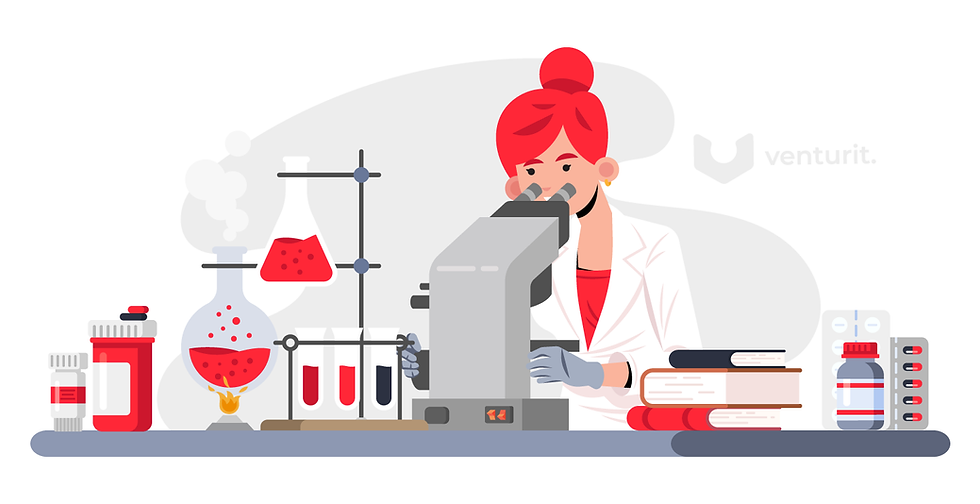The Rise of AI in Healthcare
- Prabode Weebadde
- Aug 27, 2020
- 3 min read

In the last few years, Artificial Intelligence (AI) has been breaking ground within the $3 trillion healthcare sector. The AI helps accelerate drug discoveries and supports human providers to provide faster service by taking over their routine tasks and flagging them for review if any abnormalities are detected.
In the United Kingdom (UK), the National Health Service (NHS) is trialing a chatbot to provide non-emergency help as an alternative to a human helpline. The chatbot is a product of the UK startup Babylon. It has drawn a lot of criticism and privacy concerns. However, suppose Babylon can address the concerns and prove the value it can bring into the NHS. Then, it will help reduce the human resources needed for non-emergencies and hopefully strengthen the resources needed for emergencies.
Current AI healthcare trends
AI in Disease Diagnosis:
Diabetes and Cardiovascular Disease (CVD) are the leading causes of death around the world. Early detection, improved treatment, and active monitoring can save lives. Our startup, Avidhrt (www.avidhrt.com), uses AI to detect abnormalities in cardiac rhythm, body temperature, pulse oximetry, and blood oxygen level to identify arrhythmias and CVDs.

AI in Radiology:
Artificial Intelligence brings a faster way to detect abnormalities in CT scans such as breast cancer detection. For example, the AI models can go through the patient's history, the CT scan, and improve the efficiency and accuracy of detecting breast cancer and its treatment.

AI in Psychiatry:
There is an increasing trend in demand for psychiatrists. According to Time's article [4], the psychiatrists can benefit from AI by using it to analyze data and detect trends and warning signs that he or she may not notice due to overburden.

AI in Telehealth:
The telemedicine's demand has grown exponentially due to the COVID-19 pandemic, and countries are adapting by removing barriers and facilitating care using standard communication technologies. For example, the U.S. Department of Health & Human Services waived penalties for HIPAA violations for providers providing good faith services using traditional communications technologies. We believe the increase in telehealth demand will increase AI innovations in radiology, pathology, dermatology, and psychiatry.

AI and Drug Interactions:
Nowadays, with the advancement of Natural Language Processing (NLP) techniques and speed, AI can detect drug interactions before prescribing drugs to patients. The NLP technology can scan drugs' warnings and publications and cross-check interactions with patient data and help the provider to prescribe safe and effective drugs.

Conclusion
The application of AI in healthcare has shown promising results both for patients and providers. Innovation in AI can improve the speed of detection, accurate treatment, and help to increase the quality of service.
Venturit has a world-class team of developers and AI specialists that can help grow your project. We love what we do and believe in creating a long-term relationship to drive successful product delivery, so make sure to contact us and send us an email at hello@venturit.com.

References:
Global health workforce shortage to reach 12.9 million in coming decades. (2013, November 11). Available at (https://www.who.int/mediacentre/news/releases/2013/health-workforce-shortage/en/)
Vincent, J. (2017, Jan 4). The UK's National Health Service is testing out a medical chatbot as a non-emergency helpline, Available at https://www.theverge.com/2017/1/4/14168312/uk-nhs-babylon-medical-chatbot-helpline
Leon, B. ( 2015, Oct 10). Diabetes and cardiovascular disease: Epidemiology, biological mechanisms, treatment recommendations and future research, Available at https://www.ncbi.nlm.nih.gov/pmc/articles/PMC4600176/
Jamie Ducharme (2019, Nov 20), Artificial Intelligence Could Help Solve America's Impending Mental Health Crisis, Available at https://time.com/5727535/artificial-intelligence-psychiatry/
Kate Clark, 'The promise is real': Inside the burgeoning AI-healthcare ecosystem, Available at https://pitchbook.com/news/articles/the-promise-is-real-inside-the-burgeoning-ai-healthcare-ecosystem



Comments